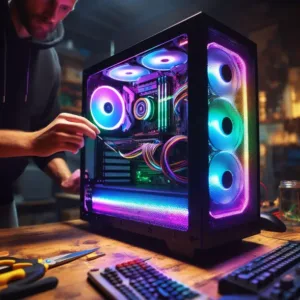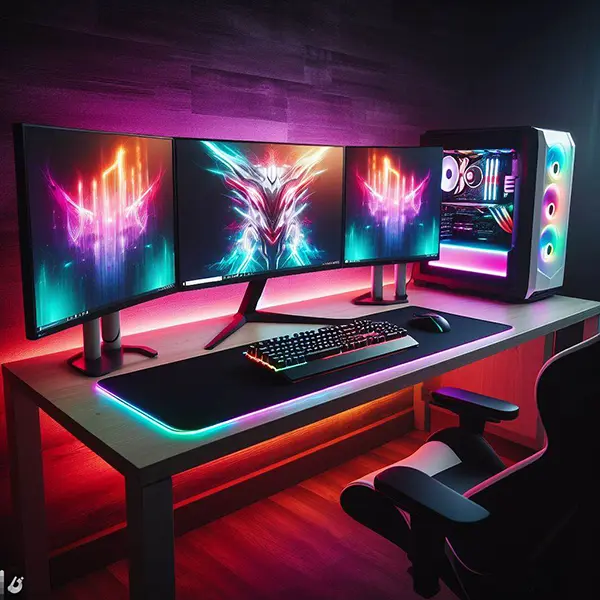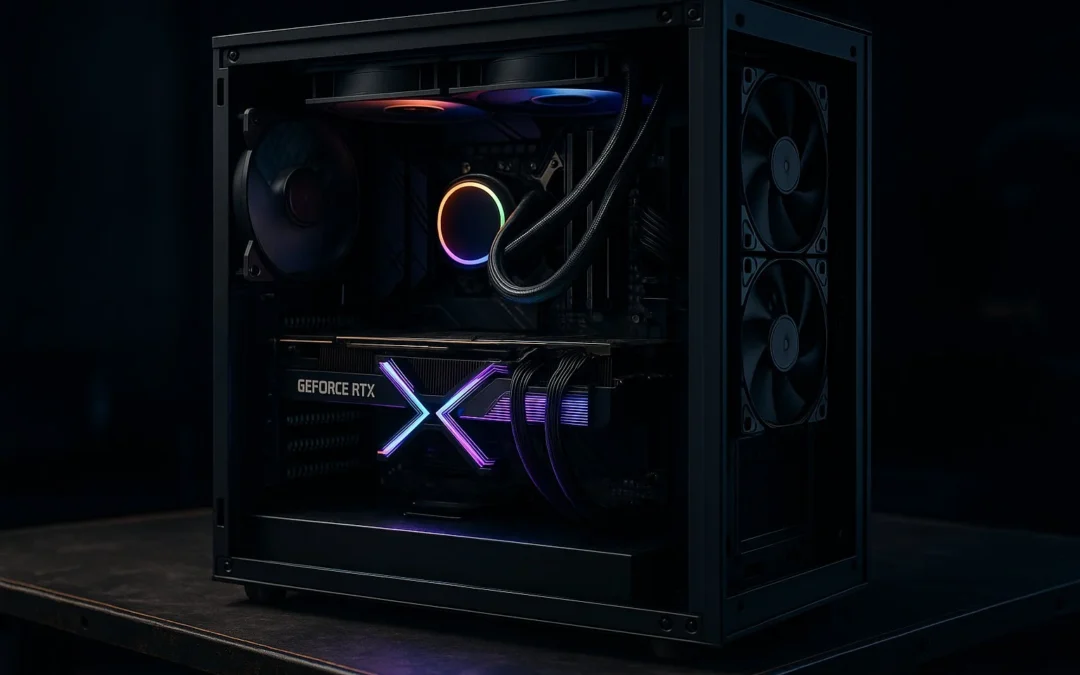Building a gaming PC in 2025 isn’t just about assembling parts—it’s about balancing cutting‑edge CPU and GPU choices with reliable cooling and a plan for future upgrades. Whether you’re tweaking an existing rig or starting from scratch, getting the mix right will make or break your frame rates and longevity.
Choosing the right CPU for next‑gen gaming
The processor sits at the heart of your system. In 2025, AMD’s Ryzen 7 9800X3D leads the pack for gaming performance. According to Tom’s Hardware, this 3D V‑Cache chip is roughly 35 percent faster at 1080p than Intel’s flagship Core Ultra 9 285K and even 30 percent faster than Intel’s previous‑generation Core i9‑14900K. The 9800X3D offers eight cores and exceptional cache capacity, giving gamers smoother frame rates in CPU‑bound titles. If you’re on a tighter budget, the Ryzen 7 9700X offers solid performance without the 3D V‑Cache premium, while Intel’s Core i5 14600K still holds its own for those who prefer blue‑team ecosystems.
When choosing a CPU, consider the games you play and the applications you run. Simulation and strategy titles benefit from higher core counts and cache, whereas fast‑paced esports games rely more on single‑threaded speed. Don’t forget about compatibility: ensure your motherboard has the right socket and BIOS update for new chips. Upgrading from a 2020‑era CPU often requires a new motherboard and DDR5 memory, so plan your budget accordingly. For a deeper dive into general computer performance improvements, see our computer repair services page.
Graphics cards: balancing performance and price
The GPU market remains fiercely competitive. PC Gamer’s 2025 roundup notes that AMD’s Radeon RX 9070 delivers the best performance–per–dollar for most gamers. This card edges out NVIDIA’s RTX 5080 and RTX 5070 while coming in at a more reasonable price. NVIDIA still holds the performance crown with the GeForce RTX 5090, which is around 30 percent faster than the previous‑generation RTX 4090, but its cost puts it firmly in enthusiast territory. For 1440p gaming, mid‑range cards like the RX 8960 or RTX 5070 Ti offer excellent value.
Before you buy, verify power supply requirements and case clearance—top‑tier cards are physically large and draw significant power. Also consider memory: 16 GB of VRAM is becoming the new standard for 4K gaming and future titles. If you’re upgrading from an older GPU, you may need additional power connectors or an adapter cable. Our gaming PC repair page covers GPU installation services if you’d rather leave the job to professionals.

Cooling, airflow and overclocking
High performance components generate heat, and effective cooling keeps them running at peak efficiency. Our technicians in Garfield regularly see rigs with top‑tier hardware bottlenecked by poor airflow or dried‑out thermal paste. Air coolers remain cost‑effective for mid‑range CPUs, while all‑in‑one liquid coolers handle the extra heat of overclocked processors and high‑density cache designs like the Ryzen 7 9800X3D. GPU temperatures can be reduced by adding case fans that create a front‑to‑back airflow path.
- Use a high‑quality thermal compound and reapply it every two to three years.
- Arrange case fans to bring cool air in at the front and exhaust hot air out the back or top.
- Keep cables tidy to prevent airflow obstructions—modular power supplies make this easier.
- Monitor temperatures using software like HWMonitor or MSI Afterburner, and adjust fan curves accordingly.
Overclocking can yield modest frame‑rate gains, especially on CPUs with ample thermal headroom. However, every chip is different—never push voltage beyond manufacturer recommendations. For GPUs, overclocking software simplifies frequency adjustments but can increase power draw. Our managed IT services team can set up remote monitoring to ensure your system stays cool during marathon gaming sessions.
From our repair bench (Garfield, NJ)
Last week a customer from nearby Clifton brought in a high‑end rig that was crashing during longer gaming sessions. We discovered the factory‑applied thermal paste on their CPU cooler had dried out and the rear exhaust fan was clogged with dust. After applying fresh paste, cleaning the case and reconfiguring the fan layout, temperatures dropped by 15 °C under load and stability was restored. Small maintenance steps like these extend the life of expensive components and prevent surprise shutdowns.
Should you build or buy?
Custom building gives you complete control over part selection and aesthetics, but prebuilt systems offer convenience, warranty coverage and financing options. Enthusiasts who enjoy tinkering often appreciate the ability to choose every component, down to the exact RAM modules and RGB lighting strips. However, many gamers are content to let experts assemble a machine and focus on playing. Whichever path you choose, working with a trusted local shop ensures your investment is protected. We offer custom builds, upgrades and troubleshooting right here in Garfield, serving Bergen County and Passaic County communities.
For critical data stored on your gaming machine—game saves, creative projects or family photos—don’t forget about backups. Hard drives and SSDs can fail without warning. See our data recovery services page for help retrieving lost files and setting up a proper backup strategy.
In the end, building or upgrading a gaming PC is a rewarding experience when done thoughtfully. From CPU and GPU selection to airflow and maintenance, the right choices will keep your rig running strong for years. If you have questions about your system or need hands‑on help, our technicians are always ready to assist.


